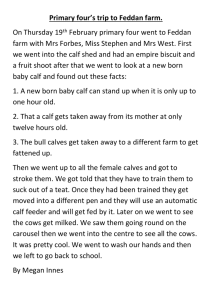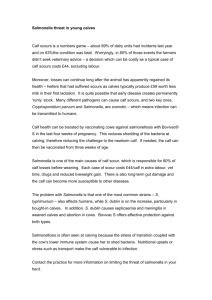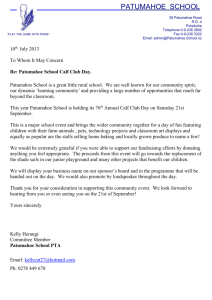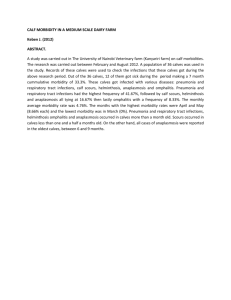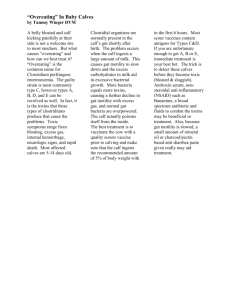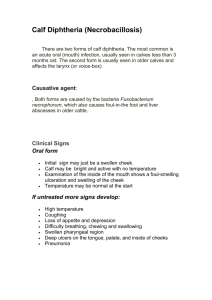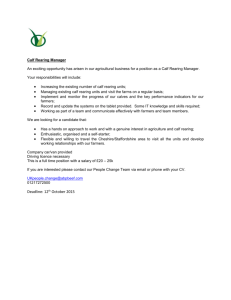“My calves are scouring – Can I have some antibiotics?” Calving
advertisement
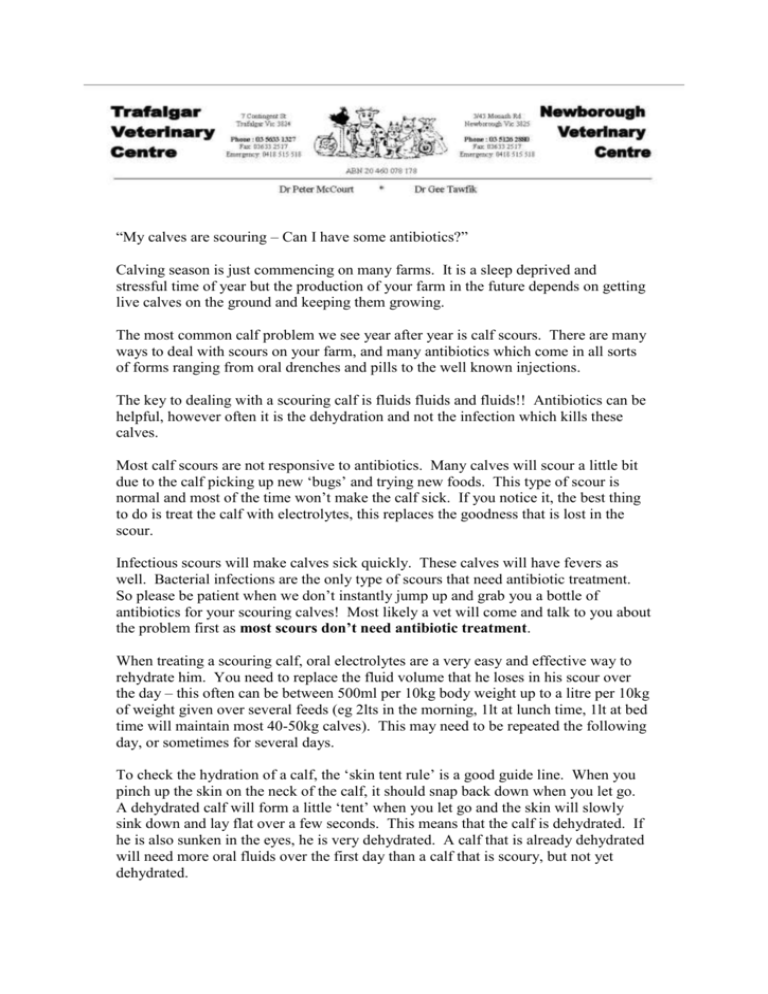
“My calves are scouring – Can I have some antibiotics?” Calving season is just commencing on many farms. It is a sleep deprived and stressful time of year but the production of your farm in the future depends on getting live calves on the ground and keeping them growing. The most common calf problem we see year after year is calf scours. There are many ways to deal with scours on your farm, and many antibiotics which come in all sorts of forms ranging from oral drenches and pills to the well known injections. The key to dealing with a scouring calf is fluids fluids and fluids!! Antibiotics can be helpful, however often it is the dehydration and not the infection which kills these calves. Most calf scours are not responsive to antibiotics. Many calves will scour a little bit due to the calf picking up new ‘bugs’ and trying new foods. This type of scour is normal and most of the time won’t make the calf sick. If you notice it, the best thing to do is treat the calf with electrolytes, this replaces the goodness that is lost in the scour. Infectious scours will make calves sick quickly. These calves will have fevers as well. Bacterial infections are the only type of scours that need antibiotic treatment. So please be patient when we don’t instantly jump up and grab you a bottle of antibiotics for your scouring calves! Most likely a vet will come and talk to you about the problem first as most scours don’t need antibiotic treatment. When treating a scouring calf, oral electrolytes are a very easy and effective way to rehydrate him. You need to replace the fluid volume that he loses in his scour over the day – this often can be between 500ml per 10kg body weight up to a litre per 10kg of weight given over several feeds (eg 2lts in the morning, 1lt at lunch time, 1lt at bed time will maintain most 40-50kg calves). This may need to be repeated the following day, or sometimes for several days. To check the hydration of a calf, the ‘skin tent rule’ is a good guide line. When you pinch up the skin on the neck of the calf, it should snap back down when you let go. A dehydrated calf will form a little ‘tent’ when you let go and the skin will slowly sink down and lay flat over a few seconds. This means that the calf is dehydrated. If he is also sunken in the eyes, he is very dehydrated. A calf that is already dehydrated will need more oral fluids over the first day than a calf that is scoury, but not yet dehydrated. If you treat calves early with oral fluids you will prevent most scour related illnesses. There are other protocols you can put in place to help protect your stock from contagious diseases, such as bacterial or viral scours and your vet will be happy to discuss these with you. Alternatively, the Department of Primary Industries has excellent fact sheets on prevention of calf diseases and this can be accessed from their webpage: www.new.dpi.vic.gov.au and search for scours.
